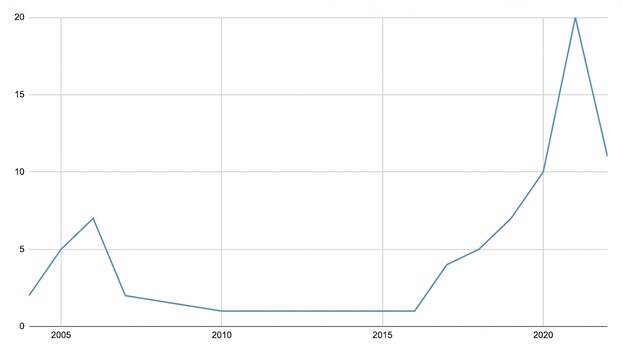Tamara Shepherd, Associate Professor, University of Calgary
Tamara Shepherd is conducting a case study on Amazon Web Services (AWS) and cloud computing lobbying activity in Canada with the TheTechLobby project.
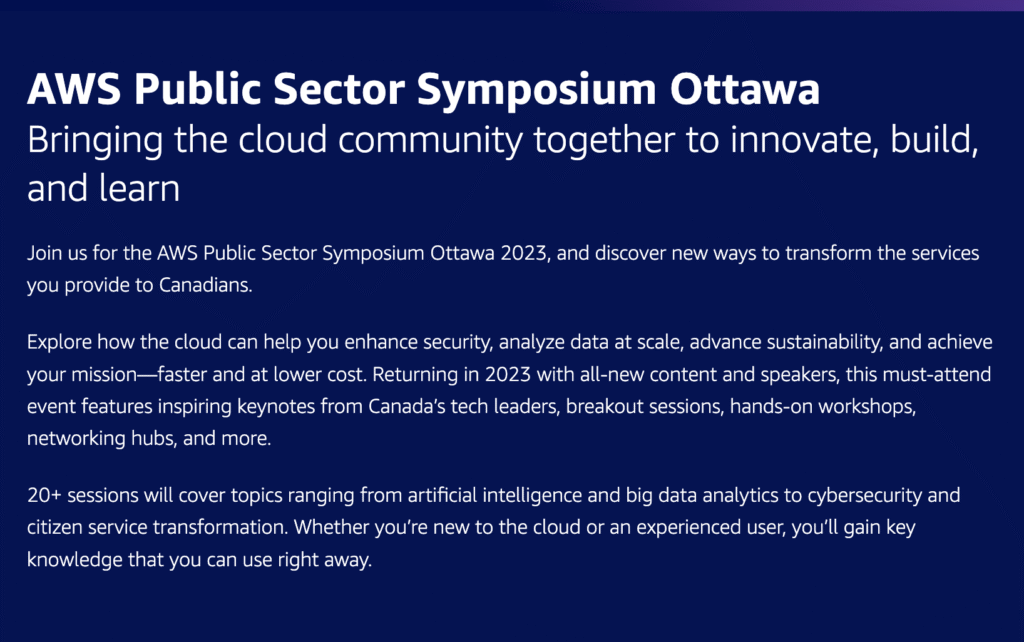
[Figure 1. Image of symposium website. Screengrab, September 22, 2023]
I went to the AWS Public Sector Symposium in Ottawa to get a sense of how AWS is pitching its services to government. Given that AWS is also actively lobbying on a host of cloud policy issues including privacy and access to information (as detailed here [link to Charnjot’s company profile: https://thetechlobby.ca/company-profile-amazon/]), it’s significant that they are being contracted by various government departments and agencies to provide cloud technology services. The symposium was indeed oriented around the government’s procurement of AWS: “Explore how the cloud can help you enhance security, analyze data at scale, advance sustainability, and achieve your mission—faster and at lower cost.” As such, the attendees were mainly AWS representatives (most of them with the vague job title “solutions architect”) and government personnel from various departments and agencies.

[Figure 2. AWS sign in window looking over Ottawa. All photos by the author.]
Held at the Shaw Convention Centre, the symposium featured a keynote, meals, and networking, along with several sessions organized into tracks (data, technology, and security), according to different levels of expertise (“introductor,” intermediate, advanced, and expert). A basic mobile app enabled users to build their day’s schedule and allowed AWS to gauge interest in each session – some sessions had the added requirement for attendees to scan their RFID tagged badges at the door. When I asked why, the person scanning my badge said, “so we know who’s in this session.” I guess that is on brand for Amazon.
The first data session I attended was presented by an AWS representative who promoted “data driven organizations” by emphasizing that they were more agile, efficient, and valuable at generating customer experience. As the presenter argued, organizations need to evolve from a “data platform mindset” to a “data product mindset,” in order to deliver “governance value and business value together in lockstep.” A representative from the Canada Revenue Agency then joined the podium to present the CRA as a data-driven government organization. He discussed how the culture, people, and infrastructure at the CRA are transforming to be more data-driven so the agency can become more innovative and efficient. This remark garnered more than a few chuckles from the audience.
The session slides throughout the day contained tech/business jargon like “continuous innovation,” “scalable iterative solution,” and “innovate your flywheel” (invoking the so-called “Bezos flywheel” positive reinforcement loop). These sorts of phrases often appeared on growth curves with unlabeled axes – the growth is so fast it can’t even be measured!
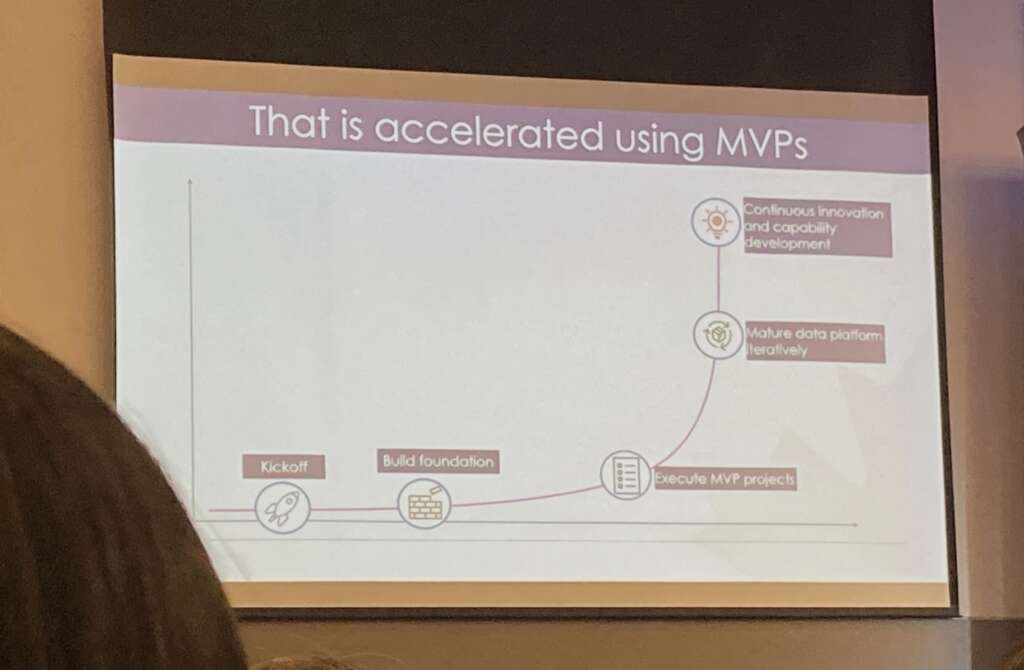

[Figures 3 and 4. Images of presentation slides with growth curves]
The keynote session was in a large conference room with a few thousand attendees, who walked in to find their seats amid thumping techno beats and a laser light show. The central keynote speaker was astronaut Col. Chris Hadfield, who used his journey to space as an allegory for the ways AWS enables a change in reality by fundamentally shifting the human perspective – he shared some very loud footage of a Blue Origin rocket launch to bluntly reinforce this point, while also noting that the moon has water and sunlight and could provide another place for humans to live (read: colonize) as what he called “an untapped continent of wealth.” This was a very Bezos moment.

[Figure 5. Image of keynote presentation by Chris Hadfield]
After launch, there was lunch. The banquet room also housed the exhibition booths, about half of which featured branches of AWS and the other half comprising assorted partner tech companies providing things like security services and AI software compatible with AWS’s technology. Taking up more space than these booths though were various games, in line with the “no collar” ethos of tech companies explored eloquently 20 years ago by Andrew Ross [link to book: https://tupress.temple.edu/books/no-collar], which apparently remains relatively the same. There were stations to compete in hockey (of course), soccer, basketball, and darts along with carnival games like “hook a duck,” a driving simulator, and a Lego town.
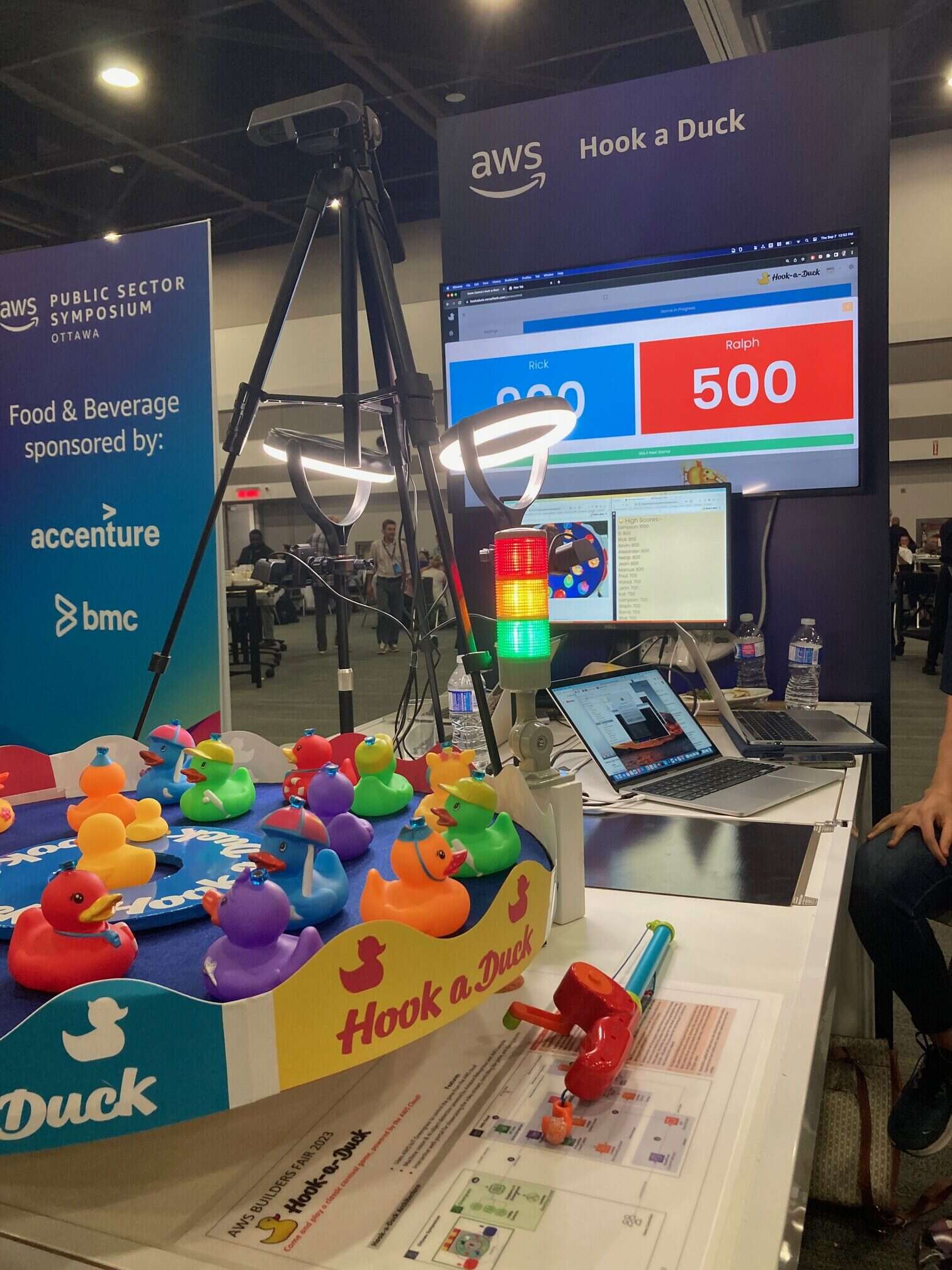
[Figure 6. Hook a Duck game at the expo hall]
As might be apparent, this version of “fun” was targeted toward the mostly male attendees. From my own eyeball estimate, I would guess that around 80% of the delegates were men, wearing either government or tech versions of business casual. Most of them spoke English, although there was French being spoken as well among government workers. In the sessions, almost no one was taking notes aside from myself, but quite a few attendees took photos of the slides on their smartphones. They did not, however, take many photos at the desolate photo-op tableaux featured all around the convention centre.

[Figure 7. Photo station beside escalators.]
Most of the people working at the event to distribute badges, field questions, and usher delegates around the space were temporary contractors. I spoke to one of them who wasn’t even sure what AWS was. I also overheard a conversation between government workers who saw new technologies like AWS’s suite of software as “shiny new things” that managers neither understood nor had the capacity to implement, instead choosing to “dump and run” after introducing new platforms to their departments. This group was quite cynical about the government having the capacity to effectively implement AWS services without a complete cultural and organizational transformation within their departments.
Nonetheless, at nearly every session, AWS was hailed as “game changing” for government operations. Particularly at an over-capacity session I attended in the afternoon, generative AI was central to the paradigm shift promoted by AWS. The AWS representative conducted demos of AI-based tools SageMaker, Bedrock, and CodeWhisperer, the names of which almost sound like parodies of tech-speak. At one point, the speaker showed how Stability AI – a platform with an “open-source ethos” that paradoxically is partnered with AWS – could generate images from prompts like “a person waving the Canadian flag at a university” and “government citizen assistant.”
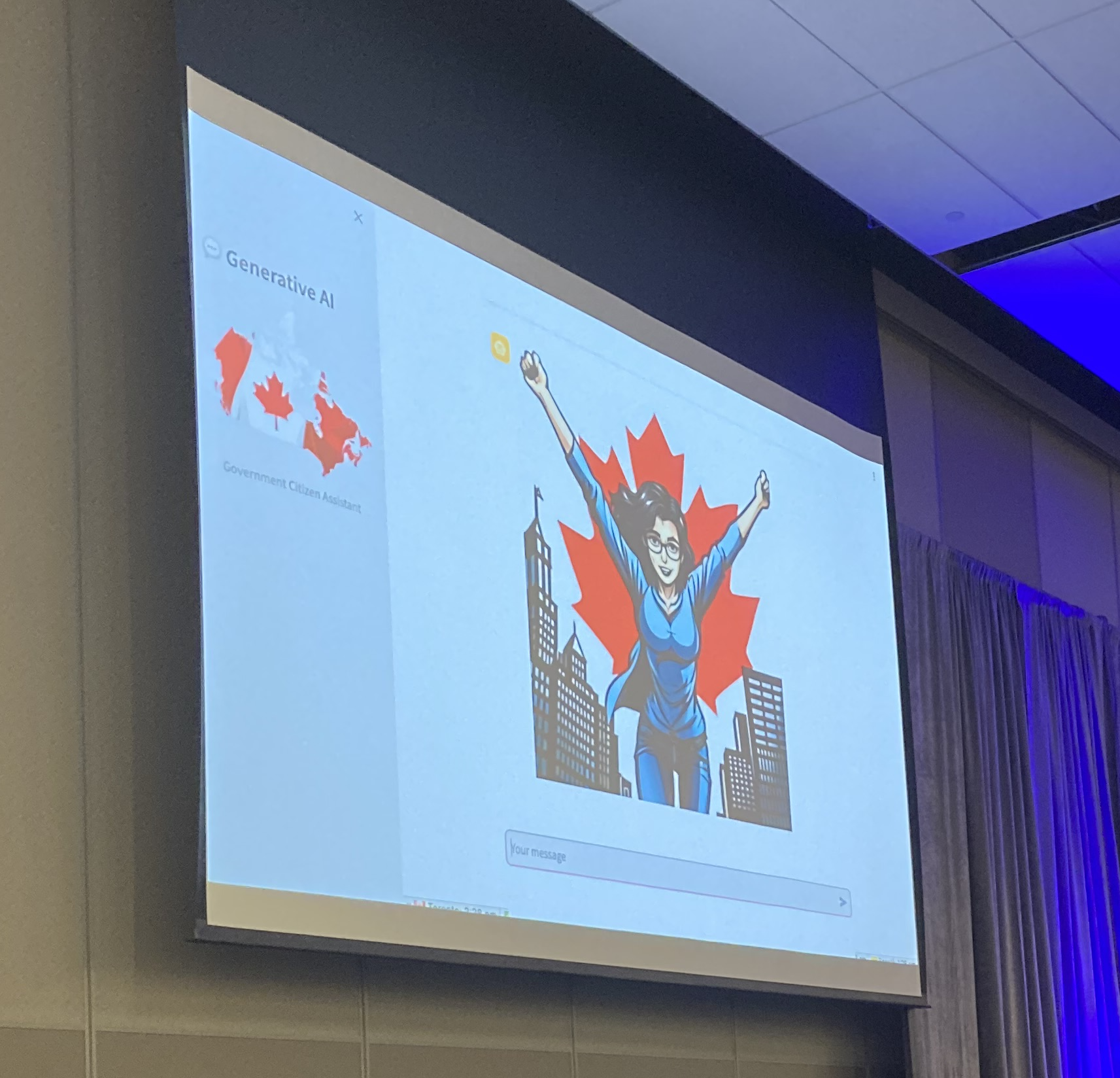
[Figure 8. Stability AI’s result for “government citizen assistant”]
As the speaker said after revealing this visual, “we’re in the first three steps of a 10k run,” which I suppose was meant to excuse the cheesiness of the image. The accelerationism and tech jargon on full display at the symposium offered an insight into how AWS is positioning itself to government with respect to procurement, a key context for their wider lobbying activity on policy issues favourable to AWS’s proprietary and sweeping version of the cloud. Chris Hadfield’s keynote address, with its explicit injunction to colonize the moon, aptly enveloped all this in the frontierism common to tech platforms predicated on relentless expansion.

